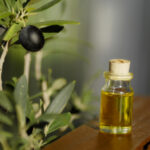Lower blood pressure with the help of olive leaf extract
 (Naturalhealth365) Worldwide, over one billion people have high blood pressure, currently defined as readings over 140/90 mm Hg. Yet, most people don’t even feel they have a problem. It’s no wonder they call this the “silent killer.”
(Naturalhealth365) Worldwide, over one billion people have high blood pressure, currently defined as readings over 140/90 mm Hg. Yet, most people don’t even feel they have a problem. It’s no wonder they call this the “silent killer.”
In the United States, the shocking statistic we just mentioned translates into one out of every three people having an increased risk for heart disease and premature death – with some studies placing the mortality rate for hypertensive adults at a shocking 200 to 400 percent higher than for those who don’t have high blood pressure. In addition, we know that the use of blood pressure medication has many unwanted health consequences.
Dangerous consequences of ignoring elevated blood pressure
Uncontrolled high blood pressure can lead to a range of life-threatening conditions, including atherosclerosis, stroke, kidney disease, heart disease, heart failure, and a heart attack. While hypertension is now defined as a blood pressure reading of 130/80 mm Hg or higher, many conventionally trained physicians often do not intervene until readings reach 140/90 mm Hg or higher.
According to many natural health experts, this approach is putting lives at risk.
As blood pressure approaches 130/80 mm Hg, damage to arteries and organs may already be underway. Research shows that the risk of heart disease doubles with every 20/10 mm Hg increase in blood pressure above 115/75 mm Hg.
According to the current guidelines from the American College of Cardiology and the American Heart Association, hypertension is classified as follows:
- Elevated: Systolic 120-129 mm Hg and diastolic less than 80 mm Hg
- Hypertension Stage 1: Systolic 130-139 mm Hg or diastolic 80-89 mm Hg
- Hypertension Stage 2: Systolic 140 mm Hg or higher or diastolic 90 mm Hg or higher
Although various pharmaceutical treatments are available for high blood pressure, they can come with a host of unpleasant and potentially dangerous side effects. These may include swollen ankles, gastrointestinal bleeding, fatigue, dizziness, kidney impairment, elevated potassium levels, and an increased risk of heart attack.
But there may be a better way.
Oleuropein from olive leaves lowers blood pressure naturally
Olives and olive oil, rich in healthful monounsaturated fats, have long been important staples of the heart-healthy Mediterranean diet. But it is the leaves of the Olea europaea tree – used for centuries to treat infections and speed wound healing – that have the highest content of bioactive compounds. In addition to potent antioxidants such as hydroxytyrosol and oleanolic acid, olive leaves contain a phenolic compound called oleuropein.
Studies have shown that oleuropein provides various health benefits, including modulating blood sugar, regulating heartbeat, reducing cancer risk, fighting inflammation, and boosting the immune system. In addition, research has shown that this beneficial compound helps to combat the arterial stiffness that contributes to hypertension – while improving endothelial function and helping to modulate calcium channel flow.
In a double-blind clinical trial published in Phytomedicine, researchers found that oleuropein reduced systolic blood pressure by an average of 11.5 mmHg and lowered diastolic blood pressure by 4.8 mmHg. (Note: the systolic, or top number, measures the blood pressure during contractions, while the diastolic measures the pressure between heartbeats).
In a randomized, double-blind trial involving 232 participants with hypertension, researchers compared the blood pressure-lowering powers of olive leaf with that of captopril, a pharmaceutical hypertensive drug. One group received 1,000 mg daily of the olive leaf formulation for 8 weeks, while the other received a standard dose of captopril for the same time.
The researchers found that systolic readings decreased by 11.5 mm Hg in the olive leaf group and 13.7 mm Hg in the captopril group – leading the team to conclude that the effect of the olive leaf was “similar” to that achieved by captopril. The researchers speculated that olive leaf might work to relax artery walls and lower blood pressure like prescription ACE (angiotensin-converting enzyme) inhibitors.
While captopril can feature side effects such as dizziness and dry cough, the olive leaf extract group experienced no adverse effects. The olive leaf extract outperformed the prescription drug when it came to decreasing fats in the blood and reducing LDL cholesterol. The olive leaf group experienced an average 7.8 percent reduction in triglyceride levels and a decrease in LDL cholesterol. The captopril group did not.
Should olive leaf be a part of your blood pressure-lowering routine?
Natural health experts maintain that a reading of 115/75 mm Hg (when at rest) is a more desirable target reading than the 120/80 mm Hg advised by Western medicine. But how can you achieve this goal, especially if you are battling elevated blood pressure?
Drug-free methods that can help you avoid hypertension include getting proper nutrition and sleep, losing weight, getting sufficient exercise, cutting down on processed salt, avoiding smoking and alcohol, and utilizing relaxation techniques such as meditation and deep breathing exercises.
These techniques can help you take fewer pharmaceutical medications or eliminate them entirely. Of course, never reduce or eliminate your prescribed blood pressure medicine without consulting a trusted and knowledgeable physician.
Bottom line: As research suggests, olive leaf extract can help you maintain healthy blood pressure. Remember: if you think olive leaf extract might be for you, discuss the matter first with your doctor.
Editor’s note: Discover the best ways to avoid the risk of cardiovascular disease, own the Cardiovascular Docu-Class created by NaturalHealth365 Programs.
Sources for this article include:



